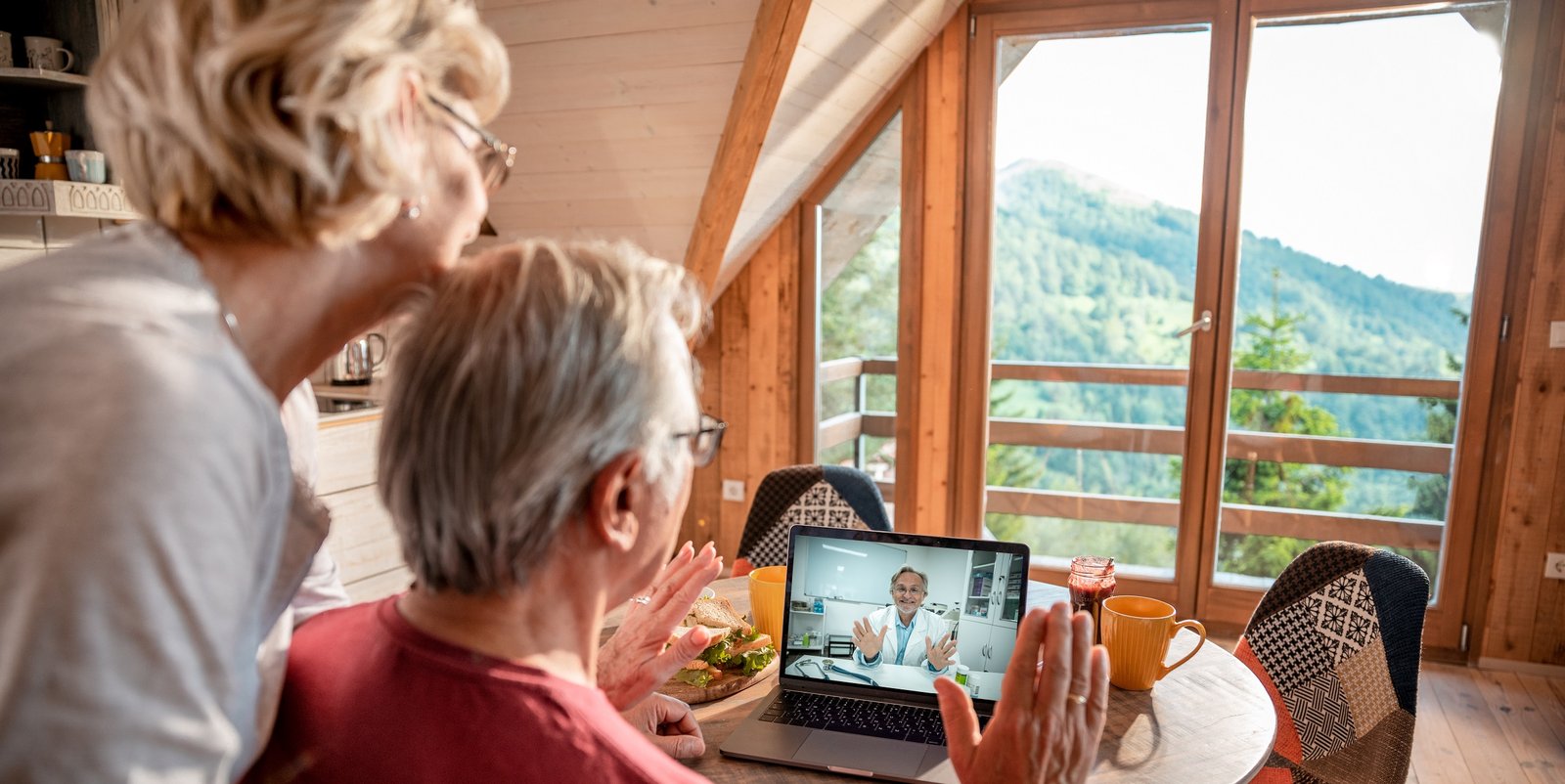Unexpected telemedicine stories
Mental healthPhysical healthSocial healthFinancial healthArticleNovember 23, 2021
Telemedicine has the potential to reach more people and drive down costs. Plus there are some other unexpected benefits, read on to learn more.
By Susan Warring
Something very unexpected happened to a doctor during a telemedicine call. He was speaking to an elderly couple, who he describes as two of his favourite patients, "holed up in their home in the mountains", trying to stay safe, but feeling the isolation.
During the call, his dogs started barking like crazy. Embarrassed, he apologised for the disruption. But to his surprise, his patients immediately asked to see his pets, having recently lost their dog, Roy.
"I spent the next five minutes chasing my dogs throughout the house and positioning my phone to better show my furry family to my patients. They really missed Roy, and seeing my dogs brought back happy memories and helped push back the gloom of isolation", he said.
This story was told to the American Academy of Family Physicians Foundation when they asked doctors how they were adjusting to telemedicine consultations.
We know that telemedicine has the potential to reach more patients, save costs, and cut down on time wasted in traffic and waiting rooms, as an article in Family medicine and community health reveals. But if it sounds like a less personal experience than the traditional visit to the doctor's rooms, the story of the dogs suggests the opposite may sometimes be the case.
Featured in The Atlantic, science journalist Marion Renault spoke to a primary–care doctor who explained that some people find real–life doctor's visits stressful. Sometimes their blood pressure rises at the doctor's, but drops when they test it while sitting quietly on their own, for example, at home.
A geriatrician told Renault a similar story. Some people perform better on cognitive tests for dementia at home. It can be exhausting in an office situation, she said, which affects memory and attention. A paediatrician told Renault that her patients can be the same – anxious in her rooms, but more relaxed when they talk to her from their own homes.
Not for everyone, though. A medical historian told Renault that for some people "keeping one’s personal life private might be the point of going into a generic doctor’s office". During a video call, they "might worry they’ll be blamed for their health problems if a doctor sees an ashtray or junk food on the coffee table", he says.
How accessible is telemedicine for less tech–savvy patients, like older people? Here's another doctor's experience, recounted by the American Academy of Family Physicians Foundation:
"I've had successful visits with 90-year-old patients because all they have to do is click a link that has been texted to them" says the doctor. "I have been pleased with how easy telemedicine is to use, both from my side of the screen and theirs. People are calling from work, their homes and their (parked) cars", he says.
Sometimes the consultation is literally on the road. Great Plains Telehealth Resource & Assistance Center (gpTRAC) recounts the story of a truck driver who started to feel ill while driving. He pulled over at a truck stop and made a phone call. A telemedicine appointment was set up. Afterwards, the prescription was phoned through to a nearby pharmacy where he collected it, before resuming his journey.
Back to the lonely couple in the mountains. To the doctor's surprise, "The intimacy of giving my patients a glimpse into my home and virtually introducing them to my dogs led to a happy moment for an isolated couple."
Not only that, but he says he felt he got to know his patients better than he would have during a face–to–face visit.
So, it seems that with telemedicine, distance has the potential to strengthen the bond with a healthcare provider – so long as we feel at home.
